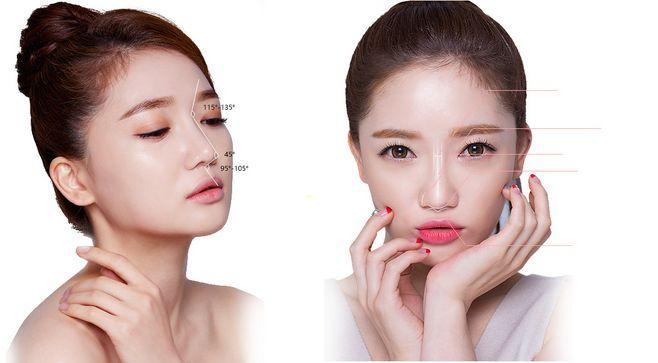
整容手术是近年来备受关注的话题,对于女性来说,整容手术似乎成为了一种趋势。然而,是否应该整容一直是一个辩论不休的话题。本文将围绕女性是否应该整容展开讨论。
整容手术是指通过外科手术的方式改变个人的外貌或身体形态。随着现代医学技术的进步,整容手术变得越来越普遍。越来越多的女性有意愿通过整容手术来改善自己的外貌。
整容手术可以帮助女性改善自己的外貌,从而增加自信心和自尊心。对于一些长期面临自卑和压力的女性来说,整容手术是一种解决方法。此外,整容手术可以改善身体功能,比如减轻**症状等。

整容手术并非没有风险,术后可能会出现并发症或手术带来不理想的效果。此外,过度整容也会导致对外貌的过分追求,造成心理压力和*后果。不少整容手术是一种不可逆的过程,可能会影响日后的生活和健康。
在争论是否整容时,我们需要尊重女性的自*和选择权。每个女性都有权决定自己的外貌和身体。如果整容手术是经过深思熟虑后的选择,并经过专业医生指导,那么女性应该有权进行整容手术。
整容手术泛滥可能对社会产生负面影响。过度追求外貌可能妨碍女性的自我发展和社会进步。过度整容还可能加剧外貌焦虑和不健康的审美观念。因此,整容应该在一定程度上受到*和监管。
整容是一个复杂而敏感的话题,我们不能一概而论。尊重女性的选择权,同时也要意识到整容的风险和负面影响。对于女性来说,关注内在的美,培养自信和自尊更为重要。zui终的决策应该建立在充分了解、理智思考和专业指导的基础上。

整容手术是一种外科手术,通过改变人体外貌以达到美容或修复目的。近年来,整容手术在全球范围内越来越受到关注和接受,但同时也引发了一些争议。本文将围绕“整容是否应该被禁止”这一话题展开辩论。

2.1 保护身体健康:整容手术虽然是一种医疗行为,但也存在一定的健康风险。手术可能导致感染、出血和身体畸形等并发症。禁止整容可以保护人们免受这些风险的影响。
2.2 反对人为美的标准:整容手术冲击了自然美的概念,使人们追求一种人为创造的标准美。这种标准美往往是极具相对性的,导致了随着时代的变迁,美的概念也在不断改变。禁止整容能避免人们受到这种标准美的束缚。
3.1 自主选择权:每个人都应该有自主选择改变自己外貌的权利。整容手术能够帮助那些对自己外貌不满意的人,提升自信心和幸福感。禁止整容剥夺了人们的自*。
3.2 美是一种表达方式:整容手术使人们能够更好地表达自己的个性和艺术创造力。它可以改善面部特征,修复创伤后的外貌,让人们更加自信地面对生活。禁止整容将*了人们对美的追求和创造力的发挥。
整容手术的合法性仍然存在争议,有人认为禁止整容是为了保护人们的身体健康和防止美的标准化,而有人认为整容手术是一种自主选择和美的表达方式。事实上,禁止整容并不是解决问题的根本办法,更重要的是加强整容手术的监管和教育,确保手术的安全性和合理性。
整容手术的可行性仍然需要更深入的讨论和研究。政府、医疗机构和公众应该共同努力,制定出更完善的整容手术管理机制,确保整容手术在安全、合理和伦理的范围内进行。
参考资料:
2. Plastic S*gery and Body Image: Cross Perspectives
整容手术作为一种美容方式,在当今社会越来越受欢迎。许多人相信通过整容手术可以改变自己的外貌,并因此改变自己的命运。然而,整容是否真能改变命运,这个问题存在很大的争议。

有人认为,外貌与自信密切相关。改变自己的外貌能提高自信心,让人在工作和社交场合更加自信和自信。自信是成功的一大要素,因此通过整容手术来改变外貌可以帮助改变人们的命运。
许多人寄希望于整容手术可以改变自己的命运。他们认为通过整容手术可以变得更加吸引人,从而获得更多的机会和更好的工作。然而,这种期望可能过于理想化,整容手术并非解决所有问题的灵丹妙药。
整容手术只针对外貌问题,而无法解决内在的素质和能力。短期内改变外貌可能会带来一些好处,但如果没有内在的素质与能力的支撑,这种改变无法持久。命运的改变不仅仅取决于外表,还取决于个人的聪明才智和努力。
改变外貌可能会带来一时的改变,但zui终一个人的命运还是取决于他的心态和态度。乐观、积极的心态对于改变命运起着至关重要的作用。即使经过整容手术改变了外貌,如果心态不好,命运也很难得到真正的改变。
整容手术可以改变外貌,但无法改变一个人的才华和能力。在竞争激烈的社会中,只有拥有真正的才华和能力,才能在职场上脱颖而出,获得更好的机会和命运的改变。外貌可以让人更加显眼,但真正改变命运的还是个人的能力与努力。
整容手术或许可以帮助改善外貌,提高自信心,但并不能真正改变命运。外貌只是一个人的外在表现,命运的改变需要内外兼修,包含心态、素质和努力等多个方面的因素。因此,整容手术并非能够根本改变一个人的命运。重要的是要不断提升自己的能力与素质,以真正改变命运。
Nowadays, the topic of whether women should undergo co*etic s*gery or not has been a subject of great debate. Some argue that it is a personal choice that can enhance confidence and improve self-esteem, while others believe that nat*al beauty should be cherished and celebrated.
Co*etic s*gery can be seen as a way for women to regain their self-confidence and feel better about themselves. It can correct physical imperfections that may cause insec*ity or distress. Proced*es such as rhinoplasty or breast augmentation can help women feel more comfortable in their own bodies. In some cases, these s*geries can even improve physical health and well-being.

While co*etic s*gery may have its benefits, there are also concerns and risks associated with it. One major concern is that society's obsession with physical appearance is creating unrealistic beauty standards. The press*e to conform to these standards can negatively impact women's self-esteem, leading them to believe that they need to alter their bodies to be accepted.
Moreover, co*etic s*gery is not without risks. Any s*gical proced*e carries the potential for complications, such as infection, scarring, or even adverse reactions to anesthesia. Additionally, it can be costly and inaccessible for many, creating f*ther inequalities in society.
Rather than resorting to co*etic s*gery, it is important to promote self-acceptance and embrace diversity. Society should enco*age women to focus on their inner qualities and achievements instead of solely valuing external appearance. Providing support and reso*ces for self-esteem building activities, counseling, and empowerment programs can help women develop a positive body image and improve their overall well-being.
In conclusion, the decision to undergo co*etic s*gery is a complex and personal one. While it may provide temporary satisfaction and boost self-confidence in some cases, it is crucial not to overlook the underlying societal issues it represents. Instead, we should strive for a society that values nat*al beauty, supports diverse body images, and promotes self-acceptance without resorting to unnecessary medical interventions.
Overall, it is crucial to foster a cult*e that enco*ages women to embrace their unique qualities and appreciate themselves as they are, rather than adhering to artificial standards set by society.